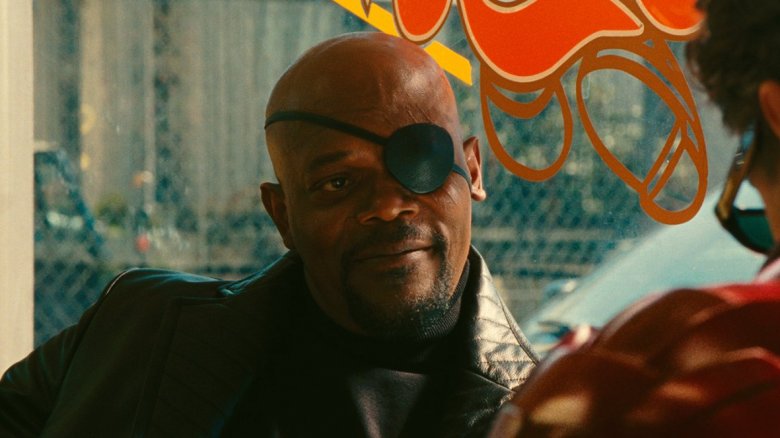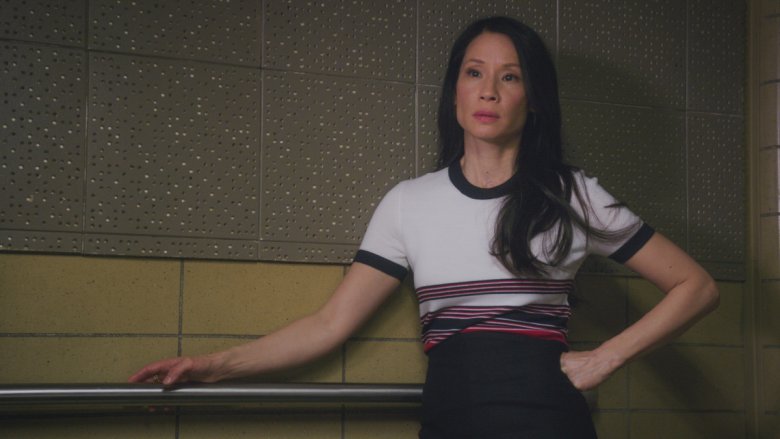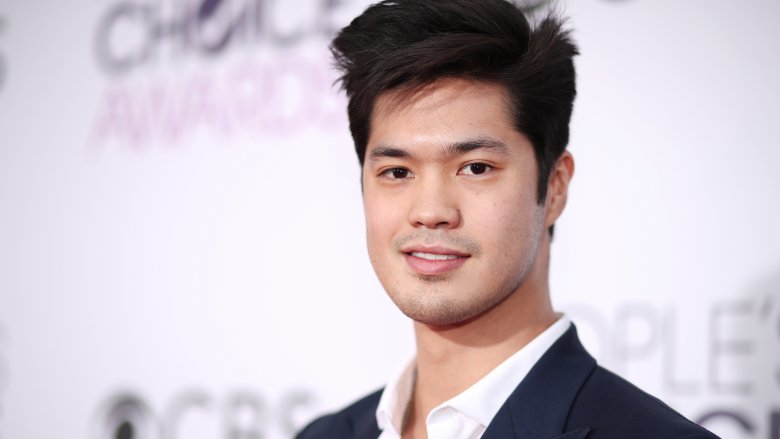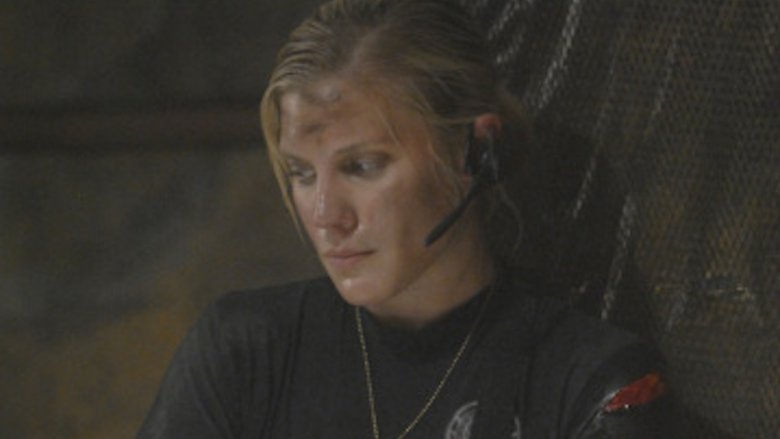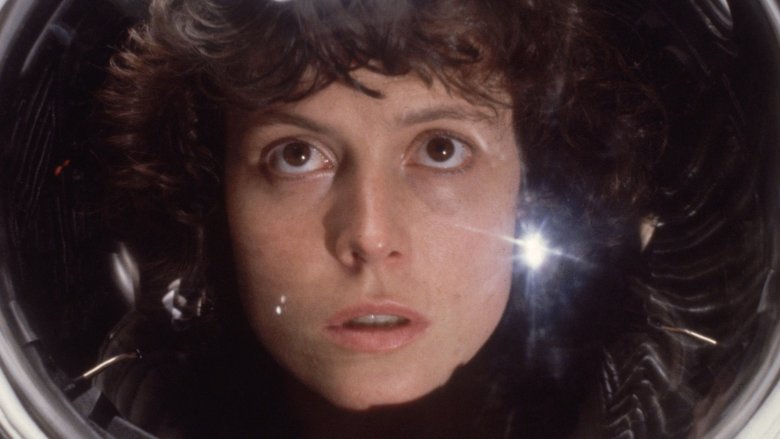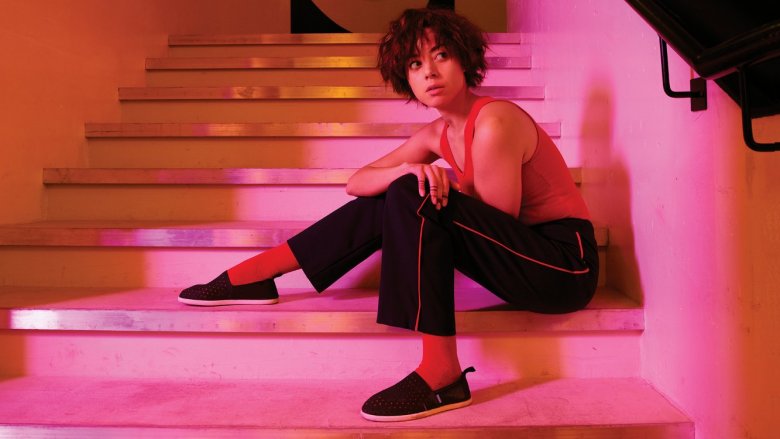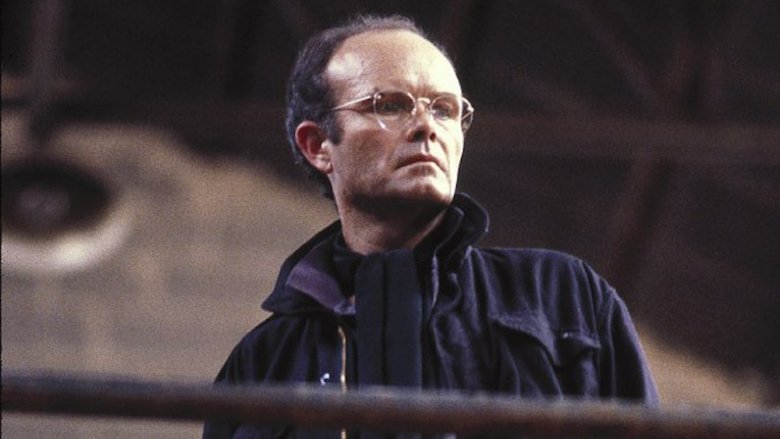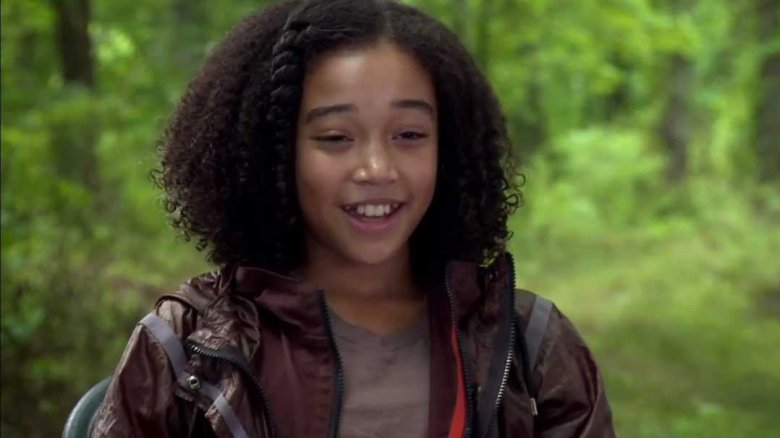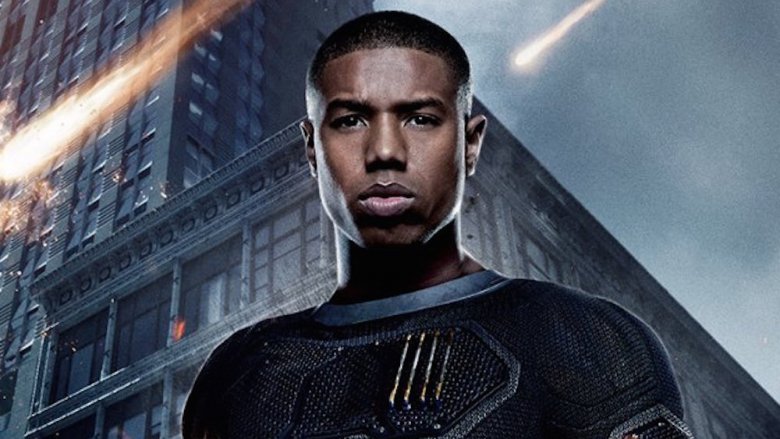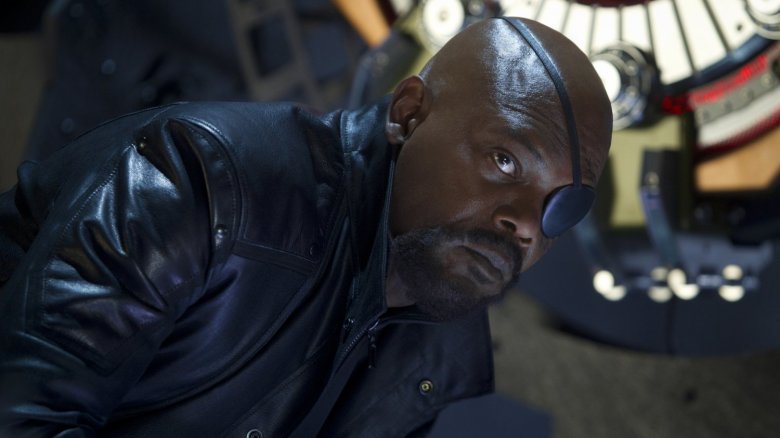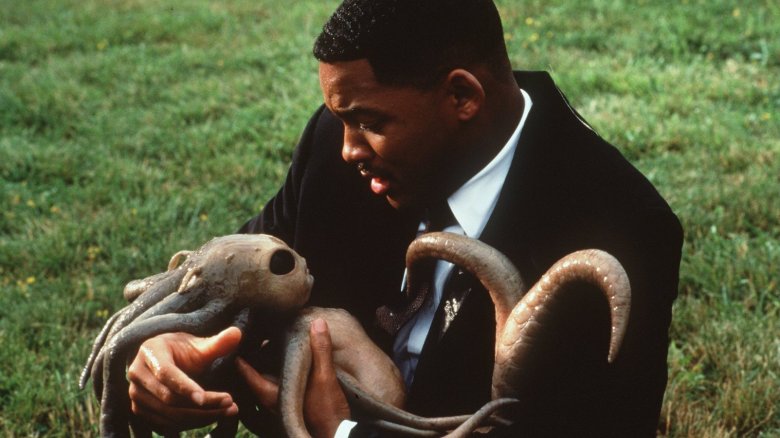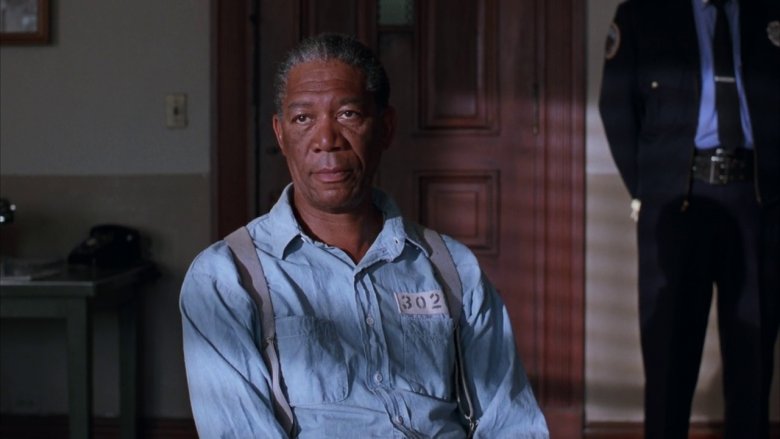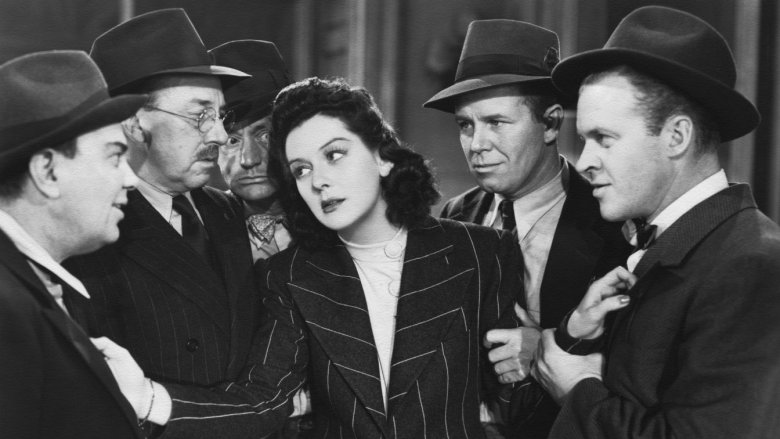Casting Decisions That Broke Hollywood Stereotypes
Hollywood isn't always known for inclusive or groundbreaking casting choices. But these days, we're seeing more and more movies and TV shows adding greater diversity and going beyond the typical archetypes. To learn more about some of the shows that paved the way for today's more innovative casting, read on.
Lucy Liu - Elementary (2012- )
Sherlock Holmes has been adapted a lot of times in movies and TV, but it took until 2012 for the casting to take a truly unexpected turn. In CBS's Elementary, Lucy Liu, an Asian-American woman, was picked to play the role of Watson—a character exclusively played by white men in the past.
Initially a lot of fans weren't pleased with the news, since most worried that Holmes and Watson would develop a romantic relationship. (You know, because it isn't possible for a male and female to work together without falling in love.) The Guardian published a particularly scathing review of the trailer of the first season, with the writer in utter despair over Liu's casting.
Luckily, viewers gave it a chance—and found that Liu made an excellent Watson. The dreaded Holmes-Watson love connection never happened, and Watson became even more of a layered, fascinating character. New York Magazine hailed Liu as the best of all the Watsons—one who wasn't simply tied to Holmes as his inferior, but an equal.
Ross Butler - Riverdale (2017)
When the CW announced they were giving the Archie comics a modern TV update, few were expecting an edgy murder mystery. In addition to the modern setting and dark tone, Riverdale mixed things up by casting outside of stereotypes.
Reggie, Archie's arch-nemesis, was played by Ross Butler, a 6'3" Asian-American who told Salon that over the course of his career, he'd refused to audition for stereotypical roles. That meant bypassing some opportunities, but it eventually paid off with substantial roles in Riverdale and the Netflix hit 13 Reasons Why.
Actually, Butler got a little too popular. Both Riverdale and 13 Reasons Why were picked up for additional seasons, and Butler's schedule wouldn't allow him to do both—so he continued with 13 Reasons Why, and Charles Melson, another Asian-American actor, will get a chance to play Reggie in the next season of Riverdale.
Katee Sackhoff - Battlestar Galactica (2004 - 2009)
Wanting to avoid a litany of sci-fi clichés, Battlestar Galactica reboot developer Ronald Moore felt that the character of Starbuck would wind up feeling like a Han Solo ripoff if it was played by another man, so he decided to make the character female.
Katee Sackhoff brought new life to the role of Starbuck, not only because of the flipped gender, but through her complicated portrayal of the devoted pilot. It's not easy to take a well known sci-fi character and make it even more popular in a reboot, but Sackhoff quickly became a fan favorite.
Beyond Starbuck, just about all of Battlestar Galactica's characters went beyond sci-fi tropes. No one was purely good or evil, men and women were treated as equally capable, and even the evil Cylons weren't always so terrible.
Sigourney Weaver - Alien (1979)
Though Alien and Sigourney Weaver go hand in hand, it's not that surprising to learn that the role of Ripley was originally written for a man. Fortunately, Ridley Scott took a chance on the 29-year-old Weaver to create one of the greatest sci-fi heroes of all time.
For a female character to be strong, have no love interest, and never need saving was revolutionary for the time. Though Alien is certainly led by Weaver, it still has a kind of ensemble feel, while the sequels put Ripley in the spotlight. In James Cameron's Aliens, she becomes an all–out action hero.
That was a big deal for the time, but even today, there have been incredibly few female action stars who carry a franchise. Maybe Cameron's time on Aliens helped him decide to make Sarah Connor such an extreme badass on Terminator 2? Either way, the Alien and Terminator movies remain unusual for their reliance on incredible female leads.
Aubrey Plaza - Legion (2017 - )
Legion is a Marvel comics adaptation about mutants, mental illness, and a lot of other weird stuff that doesn't always make sense. But Aubrey Plaza as Lenny quickly became a standout. Known more for her comedic work on Parks and Rec, few expected Plaza to get the opportunity to play such a dark, dramatic character. It was especially surprising given that the role of Lenny was originally written for a middle-aged man.
Unlike some comic book adaptations, the TV version of Legion is loosely tied to the source material. The main character, David Haller, is from the Legion comics, but most of the other characters else were made up by showrunner Noah Hawley, who had a change of heart about Lenny's age and gender between developing the pilot and casting the show. He offered Plaza the part without an audition—a smart move, since she's been hailed for her performance over and over again.
Kurtwood Smith - Robocop (1987)
Now he's known as Red Forman from That '70s Show, but before the sitcom Kurtwood Smith was likely best known for his role in Robocop, playing the villainous drug dealer Clarence J. Boddicker.
Initially, Smith went in to read for the characters of Clarence and Dick Jones. He assumed they were most interested in him for the Jones role, though he loved the idea of playing Clarence. What's especially great about the fact that he landed it is that Smith has so much fun with his sleazy part. You don't usually think of a drug kingpin as a middle-aged balding man with glasses, but after watching Robocop, it's impossible to imagine anyone else in the role. Robocop helped Smith's career immensely; he's gone on to accrue more than 100 film and TV credits.
Amandla Stenberg - Hunger Games (2012)
Amandla Stenberg scored the role of a career when she was cast as Rue in the Hunger Games franchise—but some fans of the bestselling YA series that provided the movies' source material weren't happy about the move. In the books, Rue's a young girl in the Games who reminds Katniss (Jennifer Lawrence) of her sister—and the fact that Stenberg is African-American caused an unfortunate controversy.
Most readers may have pictured the character as white, since Katniss had such a sisterly connection to her. But Rue is plainly described in the books: "She has dark brown skin and eyes, but other than that she's very like Prim in size and demeanor..." Sadly, that didn't prevent a number of racist tweets, but in the end, Stenberg gave a lovely performance and truly made the character her own.
Michael B Jordan - Fantastic Four (2015)
The 2015 reboot of the Fantastic Four franchise is mostly remembered for being a massive flop—which is too bad, because Michael B. Jordan's casting was a big step forward for superhero diversity. Of course, it wasn't without controversy; some fans were upset to hear that hotshot pilot Johnny Storm, a.k.a. the Human Torch, would be played by an African-American man—and confused to learn that his sister, played by Kate Mara, would be white.
But Jordan was mostly unfazed by the negativity. In a piece he wrote for Entertainment Weekly, he mused, "Maybe, if I set an example, Hollywood will start considering more people of color in other prominent roles, and maybe we can reach the people who are stuck in the mindset that 'it has to be true to the comic book.' Or maybe we have to reach past them."
Samuel L. Jackson - Iron Man (2008)
For decades in the comics, Nick Fury was a white guy with brown hair. In a 1998 Nick Fury TV movie, he was played by David Hasselhoff. So how did Samuel L. Jackson wind up playing the part in the Marvel Cinematic Universe—and with almost no backlash to boot?
Writer Mark Millar made Fury African-American in Marvel's Ultimate Universe comics line long before the Iron Man or Avengers films, and used Jackson as inspiration. "Sam is famously the coolest man alive," said Millar, "and both myself and artist Bryan Hitch just liberally used him without asking any kind of permission. You have to remember, this was 2001 when we were putting this together. The idea that this might become a movie seemed preposterous, as Marvel was just climbing out of bankruptcy at the time."
Thankfully, Jackson wanted the role he inspired and became the glue that held the Avengers together. History will probably remember Jackson's contributions to the character a bit more than Hasselhoff's (though Hasselhoff sees it differently).
Will Smith - Men in Black (1997)
Will Smith was already a big star when he was cast in Men in Black. He was huge on The Fresh Prince of Bel-Air, walked past explosions on Bad Boys, and punched an alien in the face in Independence Day. Still, Men in Black marked something of a turning point in his career—and for Hollywood in general.
Both of the main characters were originally drawn as white men in the comics that inspired the movie. Smith's character, Agent J, is kidnapped and forced into the alien-battling Men in Black in the comics, while Tommy Lee Jones' Agent K is much more of a jerk. Smith's casting altered the dynamic, giving Jones' trademark sourpuss glare an irresistibly funny foil—and the end result was a blockbuster trilogy.
Morgan Freeman - The Shawshank Redemption (1994)
Morgan Freeman got his amazing voiceover cred from The Shawshank Redemption. At this point the idea of anybody else narrating the life of Andy Dufresne—or playing his pal Red—is pure insanity, but it all could have gone differently.
In the short story that inspired the film, Stephen King's Rita Hayworth and the Shawshank Redemption, Red is an Irish guy. The name does make a little more sense with an Irishman, but then it wouldn't be a joke in the movie when Dufresne asks Red how he got his nickname and he quips, "Maybe it's because I'm Irish."
When Freeman first read the script, he's admitted he didn't have a clue about which part they wanted him to read for—and landing him was a huge get for director Frank Darabont, because Freeman was already an Oscar-nominated actor by the time Shawshank rolled around.
Rosalind Russell - His Girl Friday (1940)
Every now and then you still hear people use the term "she's my girl Friday." If the classic movie that inspired the saying had stuck with its source material, they'd have to say "my boy Friday," which doesn't have quite the same ring.
His Girl Friday, starring Cary Grant, was based on the play The Front Page. Director Howard Hawks, contemplating an adaptation, wanted to hear if the dialogue was still as fresh and funny as he remembered, but he didn't have two men around to read the parts—so he read one while his secretary read the other. Hawks loved the male/female dynamic and made a gender switch.
Though the role of Hildy Johnson was an incredibly strong woman who had just as much status and respect as her male costars, nobody wanted the role. Katharine Hepburn, Irene Dunne, Claudette Colbert, Jean Arthur, Margaret Sullavan and Ginger Rogers all said "no" before Rosalind Russell won the part—which launched her to stardom and is now widely regarded as one of the best female comedic roles of all time.
